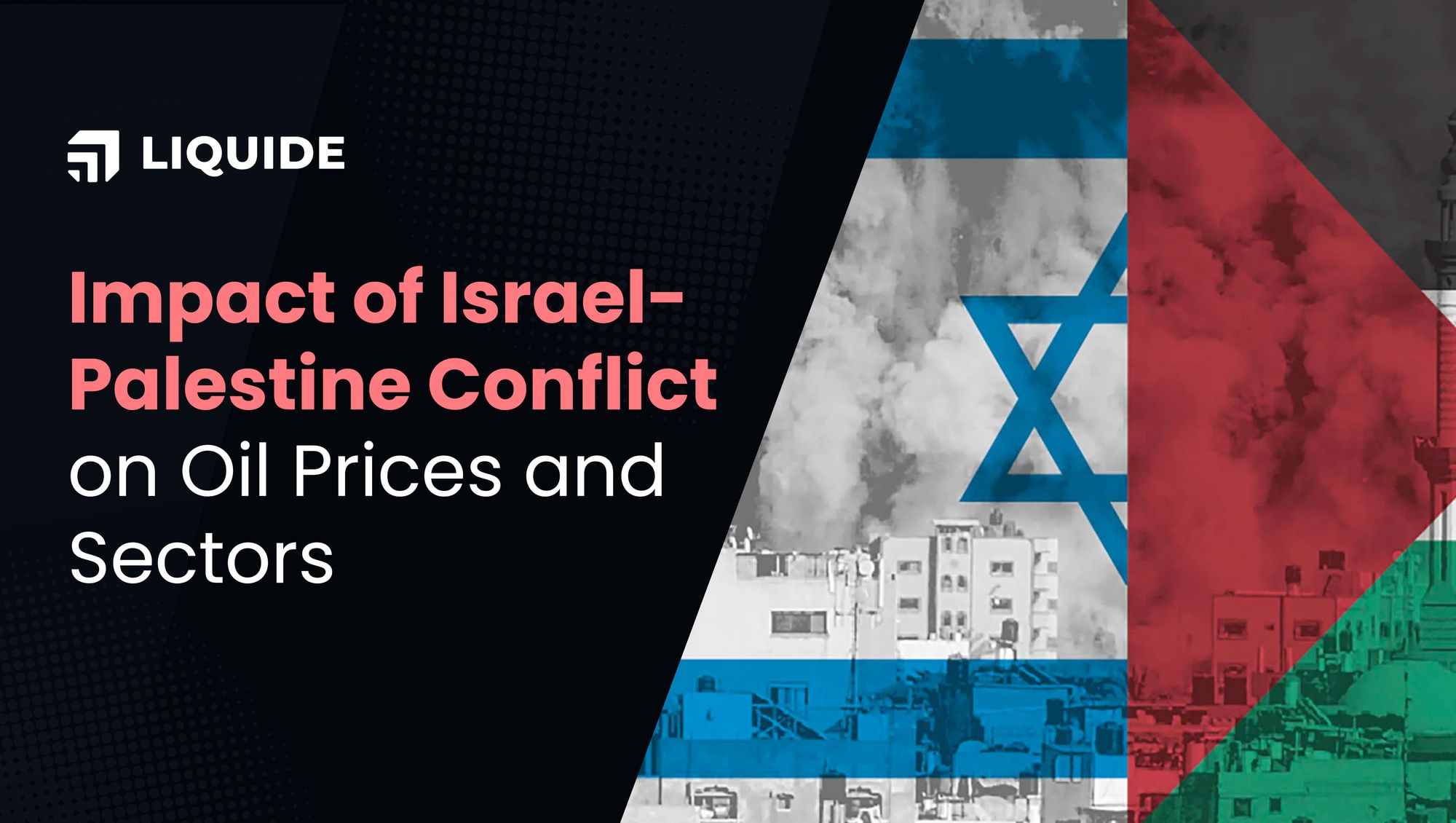Israel-Palestine Conflict Rattles Global Markets: Impact on Oil Prices & Key Sectors
Discover the far-reaching impacts of the Israel-Palestine war on oil prices, inflation, and key sectors, such as energy, manufacturing, and consumer goods.

In recent days, the escalating Israel-Palestine conflict has not only intensified geopolitical tensions but also sent shockwaves through global financial markets. The implications of this conflict are extensive, reaching investors, traders, businesses, and the overall world economy.
Market Uncertainty and Rising Geopolitical Risks
The Israel-Hamas conflict has injected a high degree of uncertainty into financial markets, amplifying geopolitical risks across the globe. Such unrest can have a profound impact on various sectors.
Impact on Oil Prices
One of the most immediate consequences of this conflict is its impact on oil prices. The possibility of this conflict spreading to oil-producing countries raises concerns about crude oil becoming more expensive, potentially resulting in negative inflationary effects in the West. Between October 6th and 16th, crude oil prices witnessed a substantial 6% surge.
Brent crude oil reached nearly $90.79 per barrel, while US WTI crude experienced a 4.3% increase, reaching $86.3 per barrel on October 16th. This sudden increase in crude oil prices can have repercussions for government-owned oil marketing companies in India, such as Indian Oil Corporation Ltd., Bharat Petroleum Corporation Ltd., and Hindustan Petroleum Corporation Ltd. These companies may experience a drop in profitability, impacting their stock prices.
The Role of Gold
Amidst market uncertainty, gold often emerges as a safe haven for investors. Gold prices have already begun to rise, gaining as much as 6% amidst the ongoing conflict. This increase is partially due to investors seeking safety amid the turmoil.
Furthermore, as oil prices rise, there's an increased risk of inflation pressure and a weaker Rupee, making gold an attractive investment. Therefore, the domestic price of gold may see an upward trend. Nonetheless, if these circumstances are limited in scope rather than widespread, the demand for gold as a safe haven might reduce.
Expert Insights
Market experts predict that the conflict could lead to heightened market volatility. Short-term fixed-income investments are once again becoming a preferred safe haven, while cyclical sectors will come under increased scrutiny.
It's worth noting that the economic impact of this situation might not be as severe as some past oil crises. The presence of Saudi Arabia's ability to boost oil production to meet demand can serve as a stabilising factor in global markets.
Impact on Sectors and Stocks
While the overall market volatility can affect a wide range of sectors, certain industries are particularly vulnerable to fluctuations in oil prices:
1. Aviation: Airlines often bear the brunt of rising fuel costs. Companies like IndiGo, SpiceJet, and Jet Airways could see their operational costs increase.
2. Automobile: Rising oil prices can lead to higher fuel costs, potentially reducing consumer demand for vehicles. Major car manufacturers like Tata Motors, Maruti Suzuki, and Mahindra & Mahindra may experience adverse effects.
3. Shipping and Logistics: Companies involved in the transportation of goods may see a rise in operational expenses, impacting their profit margins. Notably, Container Corporation of India (CONCOR) and Gateway Distriparks Ltd may face challenges.
4. FMCG: Fast-moving consumer goods companies may see increased production and transportation costs, affecting their profitability. Key players like Hindustan Unilever, ITC, and Nestle could be impacted.
5. Real Estate: Rising oil prices can lead to higher construction costs, influencing real estate projects. Companies such as DLF and Godrej Properties may be affected.
6. Paints: Companies like Asian Paints, Berger Paints, IndiGo Paints, and Kansai Nerolac Paints face potential adverse effects if crude oil prices continue to surge. These firms heavily depend on crude oil derivatives as vital components in their paint production, and the escalation in input prices may erode their profitability.
In conclusion, the Israel-Palestine conflict has set off a series of events that are reshaping global financial markets. Investors and traders need to remain vigilant and adapt to increased market volatility. In such uncertain times, well-informed investment decisions and diversified portfolios are essential to weather the challenges and seize potential opportunities.
As global markets navigate the turbulent waters stirred by the Israel-Palestine conflict, having the right tools and insights becomes crucial for investors. This is where Liquide comes in. With its expert-recommended trade setups, AI-powered LiMo bot, portfolio health checkup, expert hotline support, and comprehensive market analysis, Liquide equips you with the resources to make informed investment decisions in these unpredictable times. Don't miss out; download the Liquide app from the Google Play Store and Apple App Store today, and stay ahead in your investment journey.

